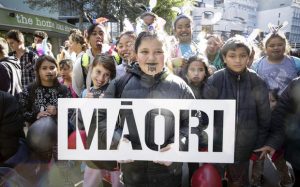Court views on Tīkanga Māori for your policies and procedures
It’s Matariki and on Friday, we in Aotearoa/NZ are looking forward to the first public holiday held to celebrate Matariki. Matariki marks the beginning of the Māori New Year.
Matariki provides opportunity for organisations to put your policies and procedures to respect tikanga Māori into action.
With Matariki upon us, I thought it was a good time to look at the recent findings of the High Court about tikanga Māori in Ngāti Whātua Orākei Trust v Attorney General. The case involved a dispute over the mana whenua claim of Ngāti Whātua Orākei to central Auckland in the context of a Treaty settlement claim.
Court findings about Tikanga

The case involved an extensive discussion by the Court about tikanga and how it should be applied as part of the law. The discussion is relevant to how we put our workplace policy commitments to respect tikanga Māori into action. The Court found that:
- Tikanga describes a set of mutually reinforcing and interlocking values or principles that guide what is “tika” or right in a situation. It reflects the interconnections of land, wairua/spiritua world and people – mana atua, mana whenua and mana tangata. (See decision at p121)
- Citing the Waitangi Tribunal, the Court accepted that tikanga is fundamental to iwi, hapū identity (at p121). It is developed by iwi and hapū and guides the exercise of rangatiratanga.
- Because it is linked to hapū and iwi identity, tikanga is not a universally agreed law or protocol applicable to all areas/rohe.
- As accepted by a range of experts in the case, there are some core principles or guidelines about tika that are accepted across Maoridom. Acknowledgement of Matariki is one example, Tangihanga would be another. How these are applied and practised though may well vary across iwi.
- Tikanga evolves and changes over time as circumstances change. It is a “way of life” not easily reducible to oral or written word. (Court citing Dr Te Kahautu Meredith, p123).
- Tikanga was the first law of Aotearoa, an expression of Tino Rangatatiratanga of iwi, hapū.
- Tikanga is a “free-standing” legal framework. In the Court’s view, it is the most appropriate form of law to apply to inter-iwi disputes. It held that neither the Crown nor parliament determines mana whenua or ahi kā. The relevant tikanga should be decided on by the iwi and hapū involved in the dispute.
Tikanga for your policies and procedures

Recognition and respect for tikanga is a Treaty of Waitangi obligation. Article 2 of the Treaty.
It’s also a requirement of the Health and Disability Standards and the Social Sector Accreditation Standards along with recognition and respect for our national language – Te Reo Māori.
Respect and promotion of tikanga Māori should therefore be a key part of policies and procedures for social, community and health services.
With Matariki upon us, it’s a great time to put your policy of supporting Tīkanga Māori into action in your workplace. This could involve:
- supporting local marae events
- consulting with kaumatua, kuia about the whakapapa of Matariki in your rohe
- following up on some of the great ideas proposed here.
For more about Matariki and what it means check out these resources:
